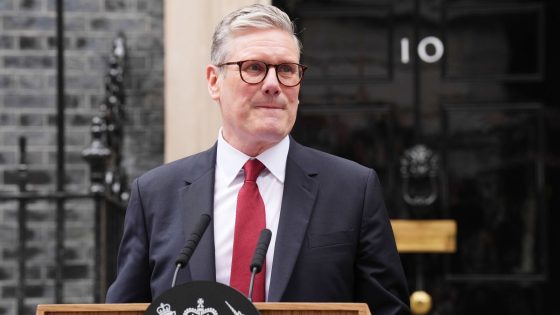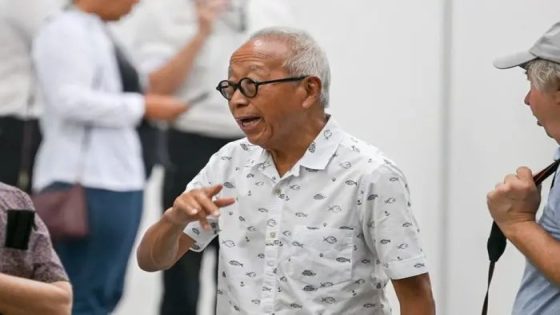Sir Keir Starmer will chair his first cabinet as prime minister this morning following a historic election victory for Labour.
The new prime minister appointed his top team on Friday afternoon, making very few changes to the shadow cabinet that existed before the election.
Follow general election fallout live
Rachel Reeves is the new chancellor of the exchequer, while Yvette Cooper is home secretary, Wes Streeting is health secretary, Bridget Phillipson is education secretary, and David Lammy is foreign secretary.
As well as appointing members of his cabinet, Sir Keir made several eye-catching ministerial appointments in the form of Sir Patrick Vallance – who served as the UK’s chief scientific adviser during the pandemic – taking on the role of science minister.
Meanwhile, James Timpson – the chief executive whose family retail and key-cutting business is known for employing ex-offenders – has been appointed prisons minister.
The one notable deviation was Sir Keir opting for experienced human rights lawyer Richard Hermer KC for attorney general, with Emily Thornberry having held the role of Labour’s shadow attorney general prior to the election.
One of the new prime minister’s first acts in power was his calls with a number of allies across the globe, including US President Joe Biden, Taoiseach Simon Harris, and Northern Ireland’s First Minister Michelle O’Neill.
Ukrainian President Volodymyr Zelenskyy also congratulated Sir Keir on becoming prime minister and said he was grateful to him “for reaffirming the UK’s principled and unwavering support for Ukraine”.
The initial sense of elation for Labour was accompanied by signs that the party was keen to address the items in the government in-tray.
The new prime minister has before him a daunting set of problems to tackle, including an NHS waiting list of 6.33 million patients, the small boats crisis in the Channel, a prison system that is over capacity, and sluggish economic growth.
Health Secretary Wes Streeting said talks with the British Medical Association (BMA), whose junior doctor members are currently on strike, would begin next week.
👉 Click here to follow Electoral Dysfunction wherever you get your podcasts 👈
David Lammy, the new foreign secretary, said on being appointed to his new position that he wanted to see a “reset on Europe, a reset on our relationships with the Global South, and a reset on climate”.
He acknowledged that Labour’s position on Gaza had cost the party some votes and that he would do “all I can diplomatically to support Joe Biden in bringing about that ceasefire”.
And asked if he regretted describing former US president Donald Trump as “a woman-hating, neo-Nazi sympathising sociopath”, Mr Lammy replied: “I will work with whomever the United States chooses to be their next president.”
Read more:
What’s really going on behind the scenes with the Tories
Jess Phillips: Election campaign ‘absolutely horrible’
On the eve of his first cabinet meeting, Sir Keir was given some advice from former home secretary Lord Blunkett, who said he should “let go of the reins a bit”.
The Labour peer told Sky News that Gordon Brown used to work 18-hour days, seven days a week, and it “didn’t work”.
He said it created a “massive log jam in decision-making”, and that Sir Keir could quickly face problems with “getting momentum and energy back into government”.
Lord Blunkett advised Sir Keir to appoint a cabinet and “let them get on with it”.
In his first speech as prime minister on the steps of Downing Street, Sir Keir – who said he will not work past 6pm on Fridays to spend time with his family – said his new government would “serve you” and that “politics can be a force for good”.
“Our country has voted decisively for change, for national renewal and a return of politics to public service,” he said.
“Our work is urgent, and we begin it today.”
Source Agencies






